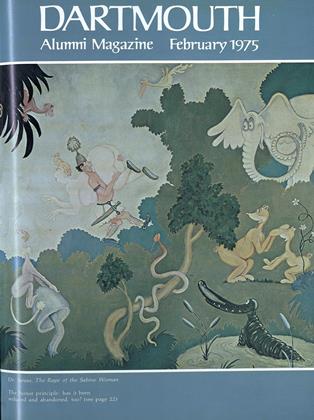Dishonesty in examinations was another student lapse with which [President Tucker] had little patience. In 1895, The Dartmouth reported that "cribbing" was very prevalent and that few steps were being taken to prevent it. In July 1986, however, the faculty took the matter definitely in hand and passed a resolution to the effect that a student who gave or received help in an examination should be permanently separated from college. The former penalty was suspension for a definite period.
The first occasion for rigorous action came in June 1897, when two juniors and a freshman were separated for this type of dishonesty. At the beginning of the following year a movement on the part of the undergraduates for the establishment of an honor system was formulated in a written constitution. In order that the discussion might not be complicated by personal issues and that the vote might be solely on the merits of the question, in December the separated students were readmitted.
After a long debate the faculty approved the general principle of the suggested honor system and consented to its adoption, provided that it should be approved with practical unanimity by the students. Upon being submitted once again to them, however, while a majority voted in favor of the scheme, that majority was not sufficiently large to warrant its acceptance. The matter reverted to its former status, more careful watch was kept on the examinations by faculty proctors and those detected in dishonesty were ruthlessly separated and never readmitted.
Leon Burr Richardson, History of Dartmouth College
 View Full Issue
View Full Issue
More From This Issue
-
 Feature
FeatureStar Birth, Star Death, and Black Holes
February 1975 By DELO E. MOOK -
 Feature
FeatureHONOR: The Vanishing Principle
February 1975 By JAMES A.W.HEFFERNAN -
 Feature
FeatureThe Great Rip-off
February 1975 -
 Feature
FeatureSome People Are Good Skiers
February 1975 By V.F.Z. -
 Article
ArticleThe Gospel According to Marcus
February 1975 -
 Article
ArticleFurther Mention
February 1975 By J.H.







